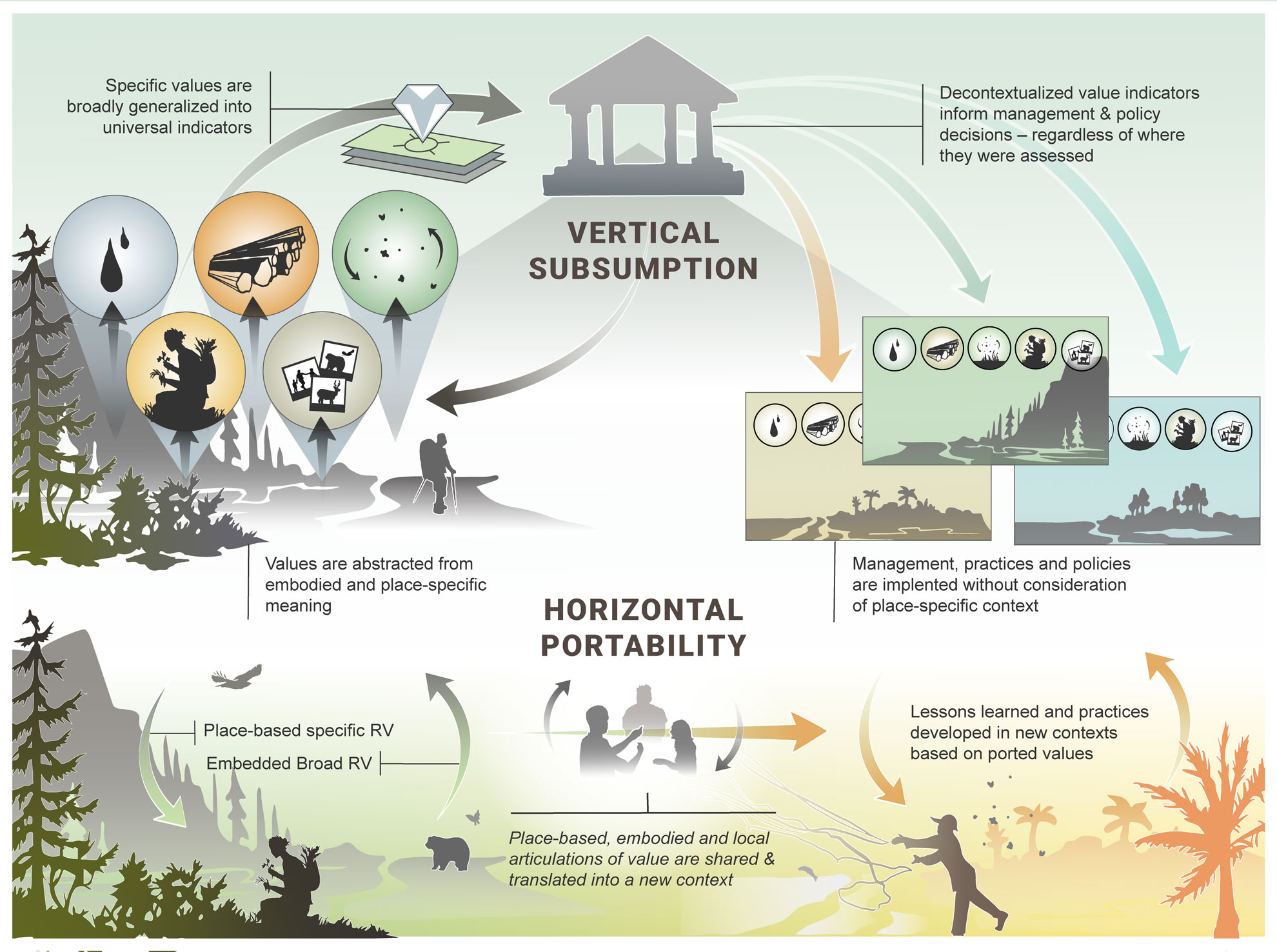We convened the sDiv Working Group sILK for Synthesizing Indigenous and Local Knowledge worldviews to develop frameworks for effective operationalisation of relational values in environmental governance. We published a synthesis article relating to the multiple and diverse values of biodiversity in People and Nature (Himes et al. 2025: https://doi.org/10.1002/pan3.70016).
Our collaborative sILK group composition was rather unconventional with philosophers, anthropologists, social and a few natural scientists and ecologists gathering from all over the world, inter alia Japan, Kenya, Hawaii, Brazil, Colombia, New Zealand, the USA, Germany, and the UK, including members of Indigenous People and Local Communities.
All members, whether established scholars or junior researchers, contributed their inter- and transdisciplinary expertise on Indigenous Knowledge and the Relational Values of Biodiversity, an important category popularized by IPBES that stresses the importance of relationships between people and nature and among people through nature.
After a week of intensive discussion, using innovative methods such as constraint-based brainstorming (Gould et al. 2023), and exchange of diverse perspectives rooted in case studies and broad interdisciplinary expertise, we developed an innovative approach for value transfer.
The concept of portability of values should help researchers and policy makers work successfully and respectfully with values of biodiversity that express uniquely specific relationships with places and carry meanings that sustain the self-understanding and identity of local communities. For example, if a community or individual holds dear specific values for a particular river expressed in stories, practices, and traditions, these values cannot be generalised to all rivers (vertical subsumption) because they are contextually rooted and place-based. Hence, the relational values of and for this river would lose meaning if considered from an abstract point of view detached from the specific context.
Instead, we suggest – under the name of ‘horizontal portability’ – ways to transport such values across contexts in collaboration with community partners, aiming at maintaining their unique rootedness and specificity. This can happen, for example, by asking what are the unique ways in which each community articulates its relationships to and understanding of the place or how do they define themselves in and through these relationships.
Publication
Himes, Austin; Muraca, Barbara; Allen, Karen; Chapman, Mollie; Coelho-Junior, Marcondes G.; Cundill, Georgina; Gould, Rachelle K.; Herrmann, Thora M.; Kenter, Jasper O.; Nakachi, ’ Alohi; Nemogá, Gabriel R.; Ortiz-Przychodzka, Stefan; Pearson, Jasmine; Rono, Betty; Saito, Tomomi; Tadaki, Marc; Bonn, Aletta (2025) Horizontal portability: A proposal for representing place-based relational values in research and policy. People and Nature, https://doi.org/10.1002/pan3.70016


Contact
Barbara Muraca
University of Oregon
E-mail: bmuraca@uoregon.edu
Austin Himes
Washington State University
austin.himes@wsu.edu